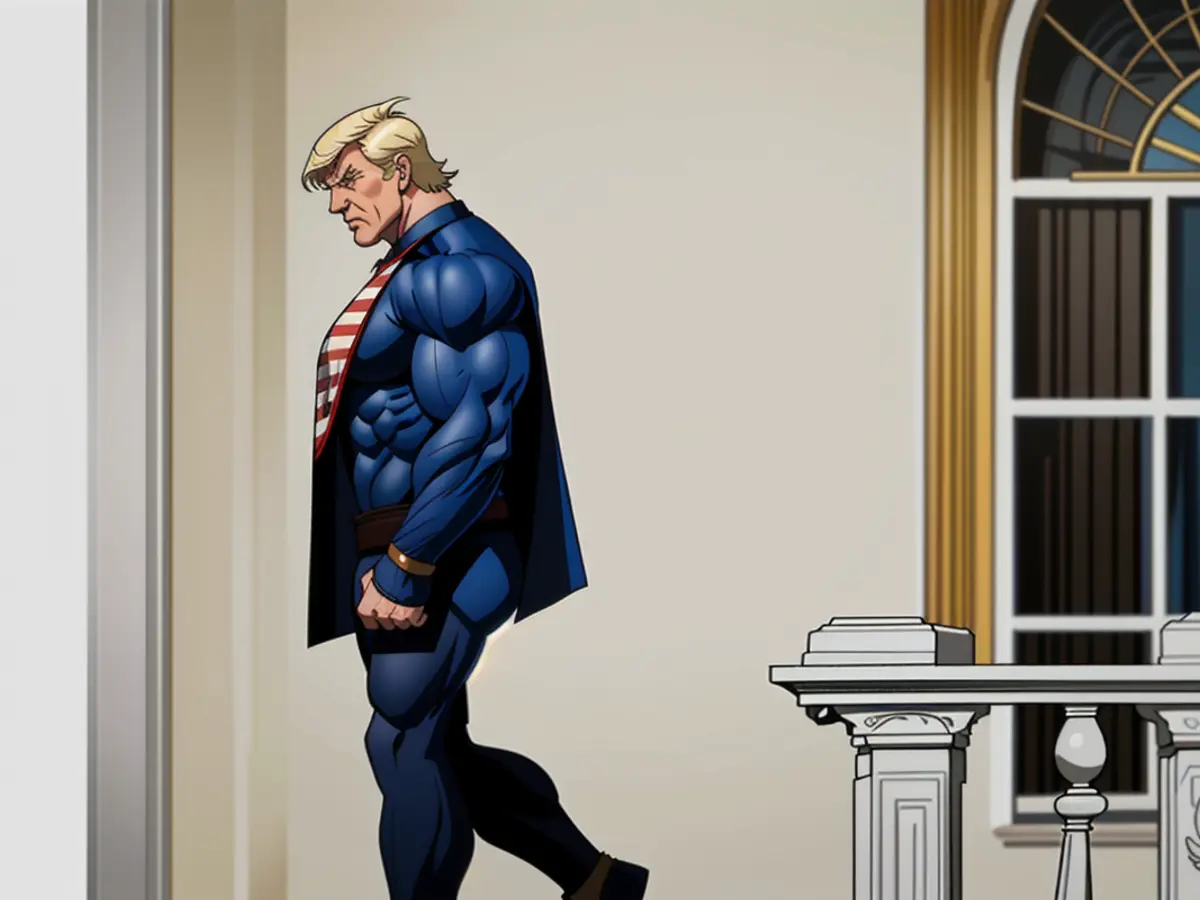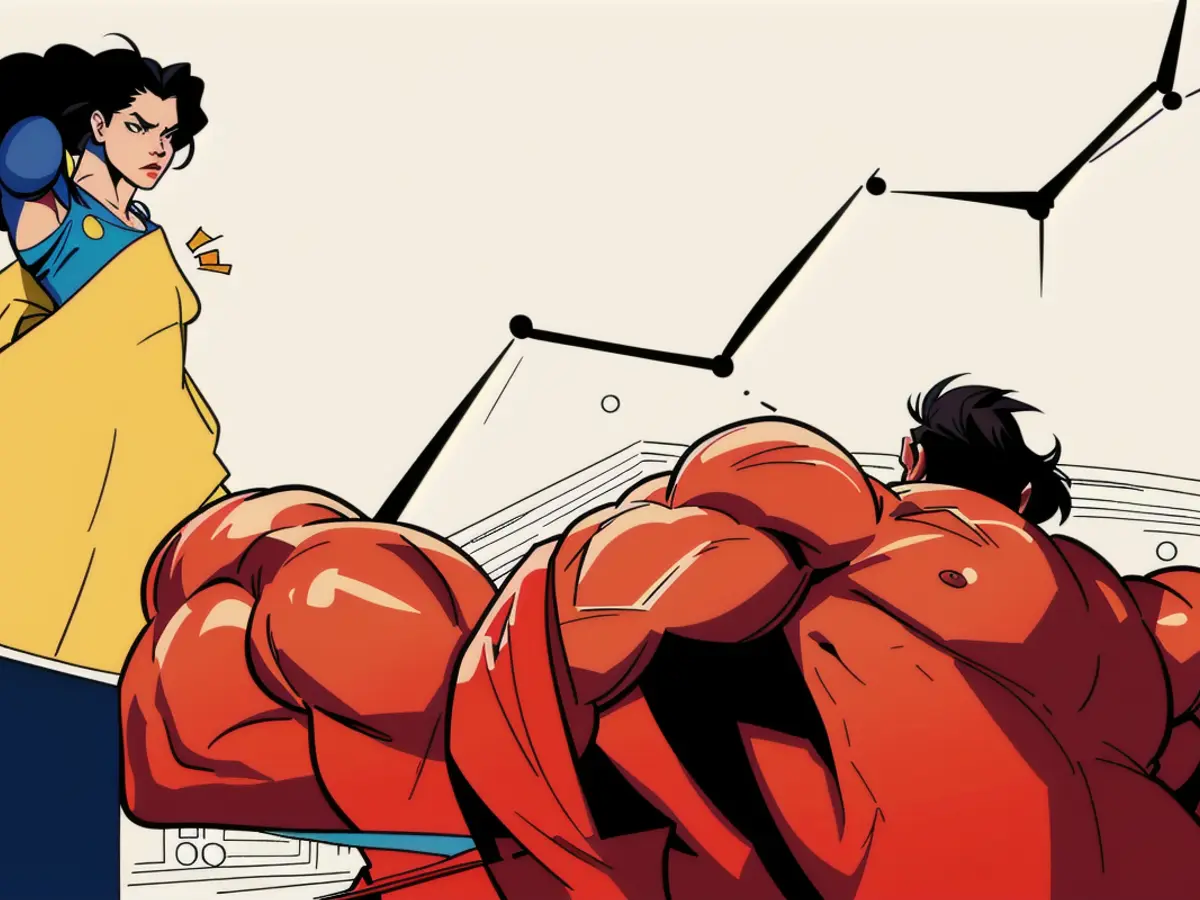- by Malte Mansholt
- 3 Min
- Title: Trump Posts Alarming Content: Is Intentional Market Crash Implied?
Wall Street is taking a beating: since last Thursday, the US stock market has seen an astounding loss of over six trillion dollars in value. The crash seems to be directly linked to Donald Trump's announcement of his worldwide tariffs on various countries. Investors are growing increasingly apprehensive about a potential recession triggered by these tariffs. Meanwhile, Trump seems content to tee off on the golf course, even as he stokes the flames.
Experts have questioned Trump's intentions ever since he unveiled these tariffs. Trump justifies them as a stance of reciprocity, arguing that he's merely warding off the tariffs of other nations. Yet, the economic downturn seems hardly to faze him. On the contrary, Trump suggests that he's masterfully orchestrating this financial rout.
A Contrived Market Crash as a Strategy?
Trump hinted at this possibility through a post on his Truth Social platform, sharing a clip that leaves no room for ambiguity: "Trump is intentionally crashing the market," the opening graphic declares. "Trump is playing chess while everyone else is playing checkers," the post applauded the former president. The post was originally published on X, and Trump actively copied the link to reproduce it on Truth Social, indicating intentional endorsement of the theory.
But what precisely is Trump hoping to achieve by sabotaging the market? The clip, initially circulated on TikTok, offers its explanation: Through the tariffs, Trump aims to fill the treasury and force a rate cut from the central bank. This would enable cheaper repayment of the US debt, the clip argues, alongside a drop in mortgage prices. Additionally, forced domestic production and agriculture sales would lower prices, making the populace prosperous. "Trump takes from the rich and gives back to the middle class through lower prices," the video proclaims. Warren Buffet, the famous billionaire investor, allegedly endorses this strategy by claiming it's "the best economic policy in 50 years."
What Trump Wants with the Tariffs
Whether Trump's strategic mind actually maps out this tactic remains uncertain. By sharing the post, Trump expressly showcases his endorsement of these theories. Some of the claimed effects, Trump has indeed indicated as desirable in recent days. For instance, he's persistently pushed for a rate cut by the central bank, although Fed Chairman Jerome Powell dismissed it as untimely. Furthermore, Trump continually underscores his ambition to revive industry in the US. Nevertheless, experts cast doubt on its feasibility to the extent Trump envisions.
It's far from certain whether the middle class will benefit at the expense of the rich. The US imports more food than it exports, causing food prices to rise due to tariffs. Exports, on the other hand, may not necessarily diminish. Thus, higher food prices are likely.
In fact, analysts anticipate a different outcome. "The impact will be more pronounced on people with lower incomes," analyst Dipanjan Chatterjee explains to AP. Additionally, the risk of job loss due to the tariffs is higher among poorer segments of the population, warns Gustavo Flores-Macías of Cornell University. "If the effects of the tariffs permeate through the economy, the jobs of low-income families will typically be the first to go."
Warren Buffet's commendation of Trump's policies, as the clip asserts, is mere hearsay. In a March interview with "CNN," Buffet explained tariffs were "a declaration of war" on trade. He further added, "The Tooth Fairy won't be paying for them."
- In the debate over Trump's intentions, some question if his employment policies could intersect with his community policy, as suggested by the clip's assertion that Trump intends to 'take from the rich and give back to the middle class through lower prices'.
- Critics argue that the tariffs, a part of Trump's employment policy, could have a detrimental effect on lower-income families, as jobs might be the first to go and food prices could rise due to the same tariffs.
- As the stock market turmoil continues, experts remain uncertain about whether Trump's proposed tariffs, specifically their potential impact on job markets and consumer goods prices, align with the seemingly favorable employment policy discourse, which some, like Warren Buffet, have deemed debatable.











